DOCTORS leading the Covid vaccine rollout have been forced to slow down.
The Health Secretary Matt Hancock admitted there were not as many supplies of doses “as we’d like”.
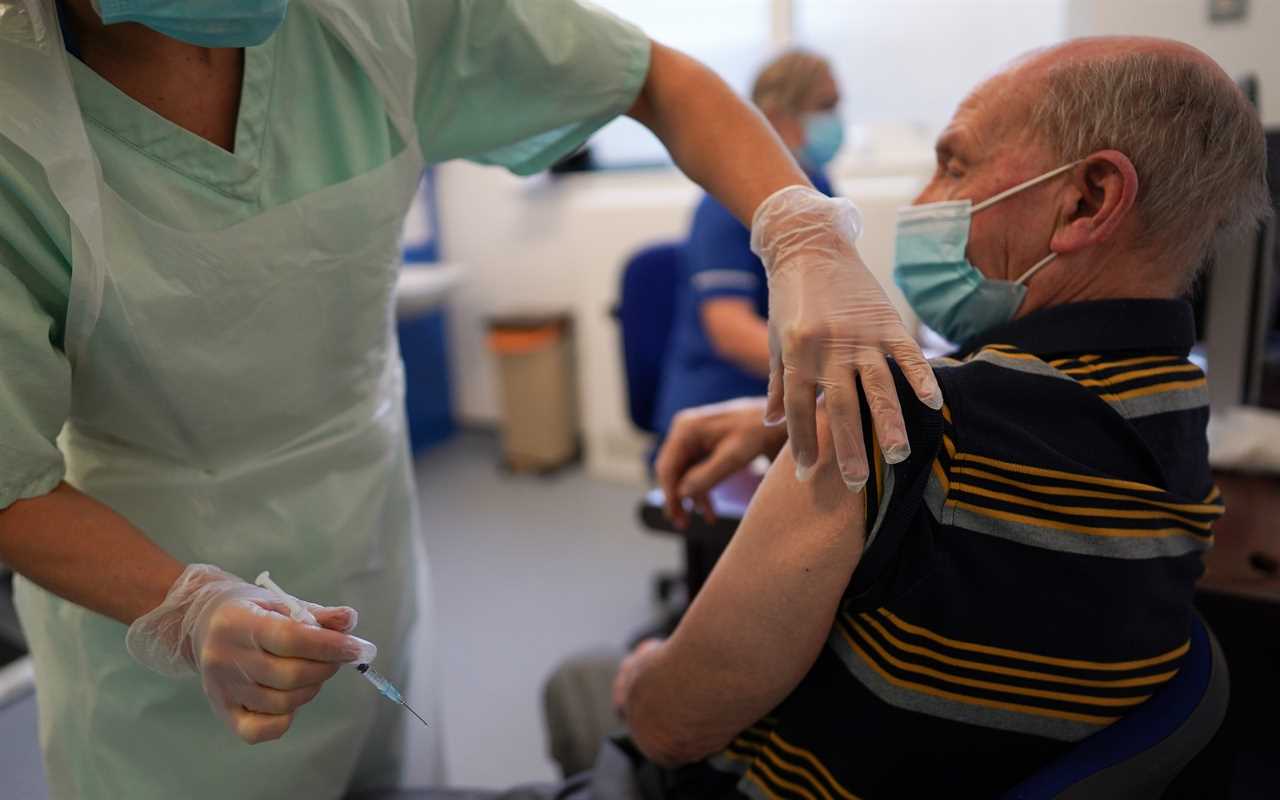
Government officials are keen to avoid a postcode lottery in who has access to the jab, and have set up seven mass vaccination hubs open across the country supported by hundreds more GP surgeries, hospital hubs and pharmacy-led sites.
They plan to have all the top four priority groups – the over-80s, care home residents, NHS and social care workers – protected first, with every adult offered the jab by the autumn.
But GPs in some areas are ready to start inviting those in their 70s to receive their first dose, having already got through all the over 80s in their area.
NHS leaders are holding back supplies so the parts that are running at a slower pace can catch up, The Telegraph reported.
A Government source told the paper: “Some areas started before others and therefore are further ahead in vaccinating the elderly and vulnerable.
“There is a limit on how many vaccines we have, so if an area has more progress to make in hitting the target they will get vaccines ahead of other areas that are more advanced.
“It’s not a case of stalling or telling people to go slower – it’s about proceeding at the fastest pace you can but doing it evenly between different areas.”
Dr Mark Porter revealed his practice in the Cotswolds had already vaccinated the majority of over-80s and was ready to move to the over-70s and clinically vulnerable – the next groups in the priority list.
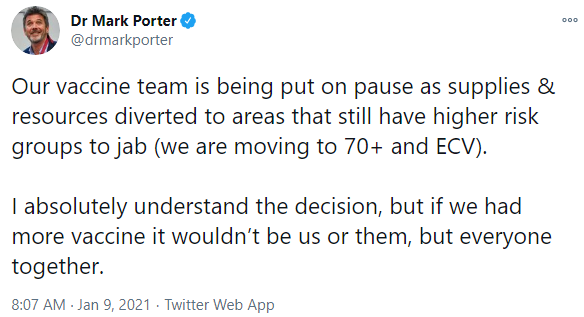
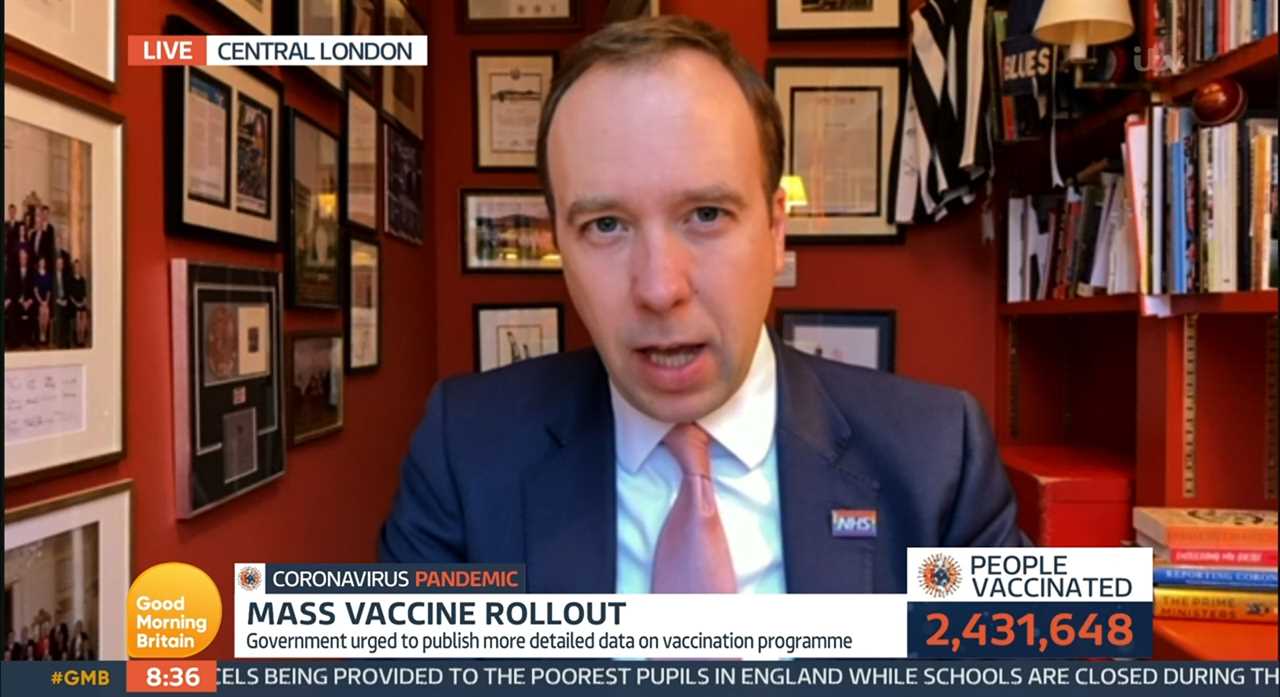
However, he said his vaccine team “is being put on pause as supplies and resources diverted to areas that still have higher risk groups to jab”.
Dr Porter wrote on Twitter: “I absolutely understand the decision, but if we had more vaccine it wouldn’t be us or them, but everyone together.”
The senior doctor said he hoped the Government were “not robbing Peter to pay Paul”.
Asked directly by BBC Radio 4’s Today programme if there wasn’t enough supply for the Cotswolds GP, Mr Hancock replied: “Correct.
“As I’ve said all along in this vaccine programme, the rate-limiting step in the rollout is the supply of the vaccine itself.”
“Supply of the vaccine is the rate limiting factor.
“And we have to make sure that the vaccine is distributed to everybody over the age of 80 in the first instance, then it will be over the age of 70 by February 15.”
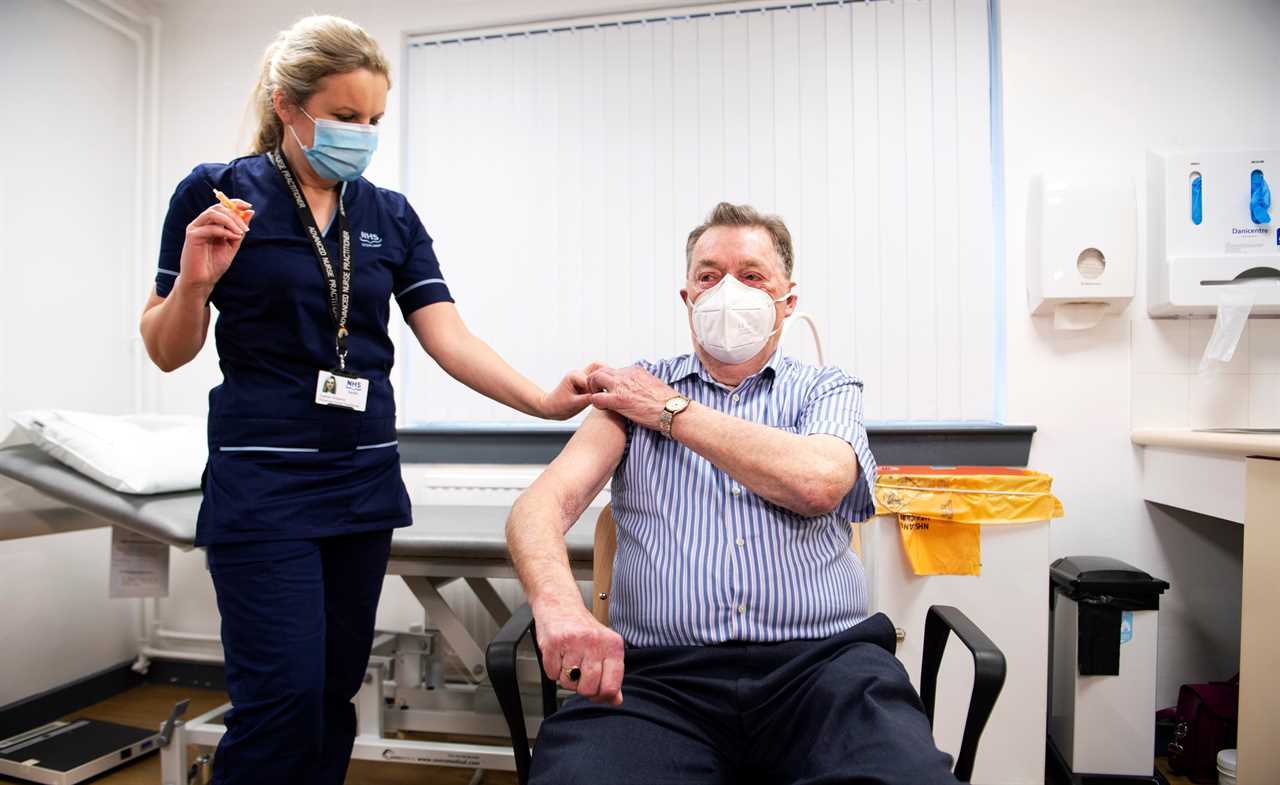
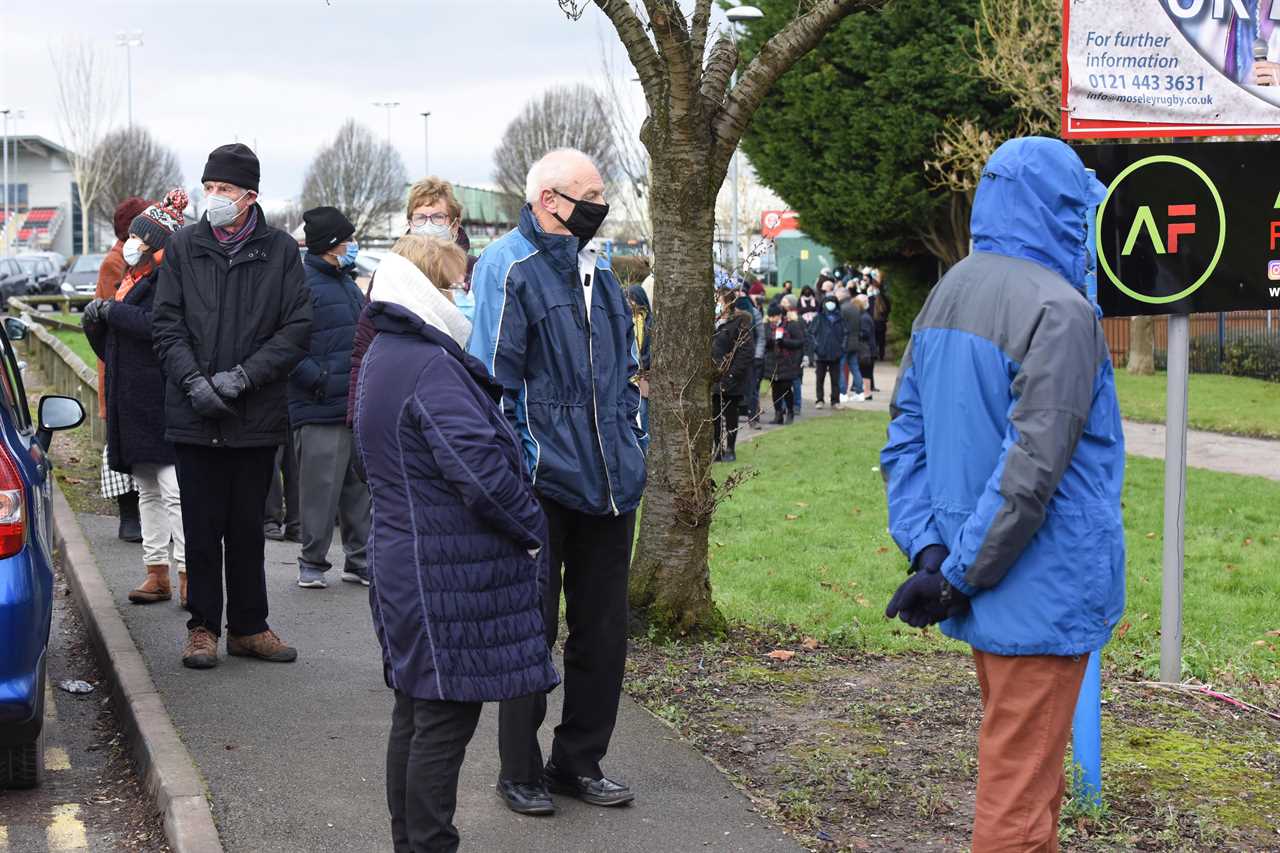
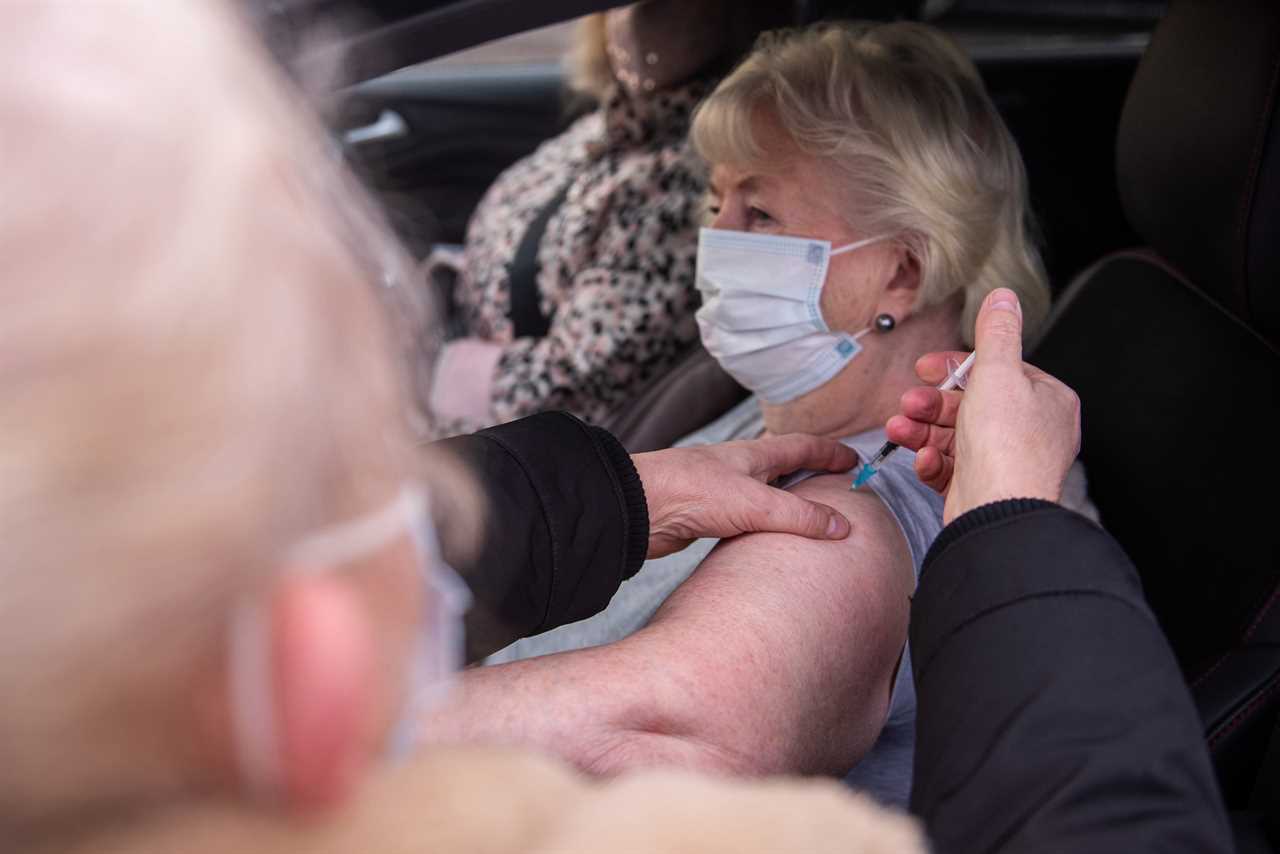
Asked if GPs who finish vaccinating over-80s would be told to wait, he said: “Not necessarily because we’re also vaccinating healthcare staff at the same time and of course getting in to vaccinate people in care homes.”
Professor Martin Marshall, the head of the Royal College of GPs, said he supported the decision to pause the rollout in some areas but that it was “frustrating”.
“Some GPs have really got their systems very slick and are vaccinating at a very fast pace,” he told The Telegraph.
“But I think it would be a problem if you have a 90-year-old in Cornwall who hasn’t got a vaccine, while 70-year-olds in Gloucester are getting a vaccine.”
More supplies would speed up vaccination, Hancock says
It is hoped lockdown measures will start to be lifted by mid-February, when the Government have promised to have the 13.5 million most at-risk people vaccinated.
The latest Government figures showed 2,431,648 in the UK have received a first dose.
The Government need to scale up to vaccinating two million every week if they want to hit the February target, but are far short of that, at around half a million a week.
Mr Hancock insisted he was “right on track” for the target, adding: “If I had more supply, we would go faster.”
AstraZeneca, which makes the Oxford vaccine, said today it is “imminently” scaling up to release two million doses of its vaccine per week in the UK.
But the firm cannot commit to meeting this target by February.
Tom Keith-Roach, president of the company, told the Commons Science and Technology Committee: “Drug substance manufacture is a 58 to 60-day process that you cannot speed up – that is a complex biological process of actually growing the adenovirus vector.”
At the same meeting, vaccines minister Nadhim Zahawi told MPs the initial vaccination supply had been “lumpy” but he now had “line of sight” of deliveries to the end of February.
He claimed “day by day, what you’ll see is greater volumes going out”.
It comes amid calls for a 24/7 vaccination push, whereby mass jabbing sites are open all day and night to reach more people quickly.
Mr Hancock claimed the Government were “absolutely up for doing that” when asked on BBC Breakfast.
He told BBC Radio 4’s Today programme: “We have the capacity to get that vaccine out. The challenge is that we need to get the vaccine in.
“What I know is that the supply will increase over the next few weeks and that means the very rapid rate that we are going at at the moment will continue to accelerate over the next couple of weeks.”
Boris Johnson has said the NHS will launch a round-the-clock vaccination service as soon as possible – also blaming “the limit on supply”.
“We will be going to 24/7 as soon as we can,” he told MPs today.






